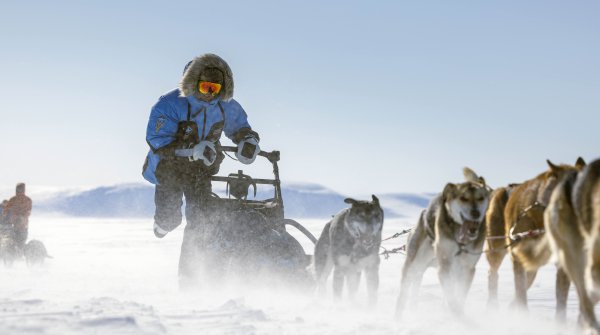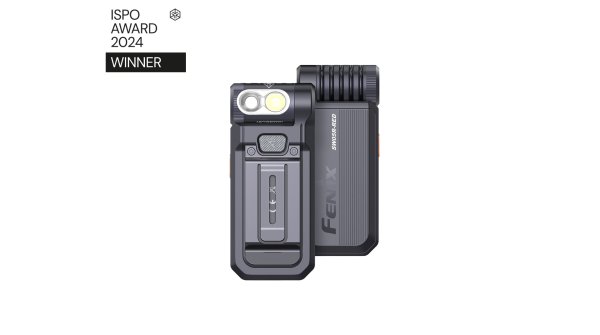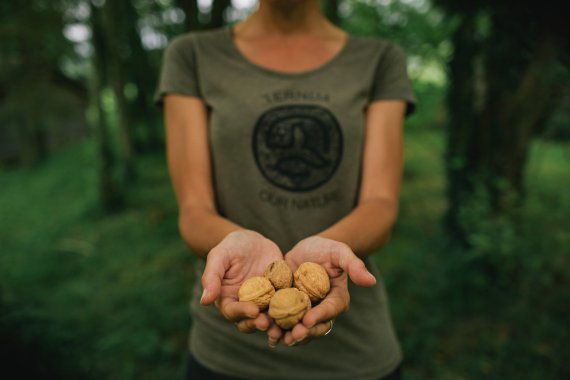
Craftsmanship, sustainability, and innovation are three brand values that distinguish Ternua. Since the beginning, the brand with the whale's tail has stood for sustainably produced, technical outdoor clothing. At the time, the first collection even included fleeces made from recycled plastic bottles. In 2015, Ternua was a global pioneer in the use of recycled feathers (ISPO AWARD Gold Winner 2016 for their Terranova and South River jackets with recycled feather fill). And it was one of the first European brands to eliminate toxic chemical substances (PFCs) for water-repellent treatment of its garments in 2016. Nowadays, it recycles numerous materials in the production of its clothes: cotton, feathers, coffee grounds, fishing nets, PET plastic, plastic waste from the sea, walnut shells, wool, railroad carpets, or discarded textiles.
Ternua's connection to nature is also unmistakable in the brand logo of the whale's tail and the story behind it. The logo and also the name were indeed inspired by Basque adventurers from earlier times who traveled to Newfoundland (in Basque "Ternua") to hunt whales and live off what the animals gave them. Unlike back then, however, the brand goes out of its way to protect marine mammals and has also adopted four whales in the past.
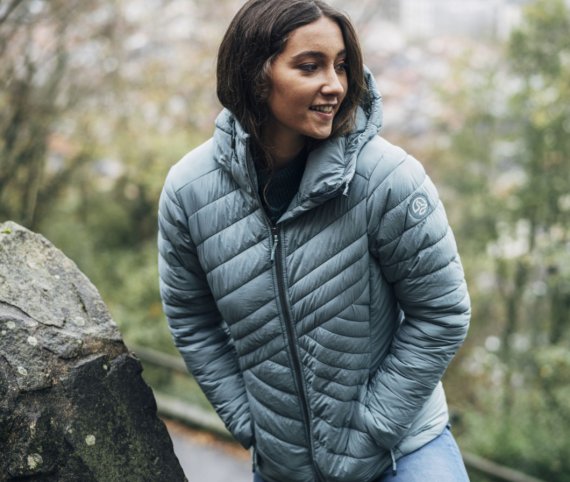
The goal of Ternua is to dress and equip people with a sense of adventure and environmental awareness. The brand aims to design clothing that protects people during their outdoor activities while protecting nature simultaneously. It uses processes and materials that respect the environment. In its efforts to act in a sustainable and environmentally friendly way, the brand has always been a pioneer. For several years now, Ternua has been pursuing various well-thought-out initiatives and unique circular economy projects, the effects of which have a positive impact on the environmental balance of the region. They are also intended to be a call to action - both for local businesses in the Basque Country and for the global outdoor industry.
Redcycle was the first initiative Ternua tackled for a more sustainable and ecological business. Together with Basque fishing associations, Ternua was able to salvage 12 tons of discarded fishing nets from the Cantabrian Sea. In collaboration with yarn manufacturer Aquafil, this catch was transformed into Econyl yarn. The brand has produced pants and leggings for hiking with this yarn, along with less technical products such as the urban Ride On pants (Outdoor Industry Award 2017), a hat and backpack for hiking, and highly technical apparel such as the Blackcomb Competition Mountain ski suit (ISPO Award Gold Winner 2019) and a jacket for climbing high peaks.
Three years later, the brand completed its next circular economy project called Nutcycle. As part of this initiative, Ternua collected 500 kg of walnut shells from cider houses in Guipuzcoa, Basque Country. There, large quantities of shells are produced during wine tastings, as walnuts are served with the local cider during the tasting. Until then a waste product, Ternua turned the shells into a natural dye in collaboration with Archroma and used them for their clothing.
In 2019, the sustainable company presented Seacycle, a third project that also focused on the ocean as part of an environmental circular economy. In collaboration with AZTI-Tecnalia, the Basque government (IHOBE), EKO-REC, and Seaqual, the brand found a way to use the plastic waste collected by three fishing boats along the Basque coast. Mixed with yellow container plastic, the plastic collected from the sea was used to create high-quality textiles, which in turn were used to make sustainable technical outdoor clothing.
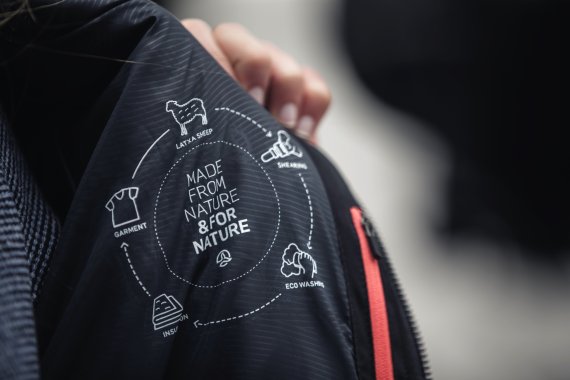
Ternua's latest project is Artileshell and was implemented in 2020. The initiative aims to use a natural resource that, although very important locally, has not yet been put to good use. The wool of the Latxa sheep was a natural choice. Although the milk sheep native to the Basque Country have to be shorn twice a year, their wool was never usable because it could neither be spun nor was it particularly pleasant in contact with the skin. The sheared wool was therefore considered waste, causing additional costs for shepherds. After research and development work, Ternua has given the wool a new use as a sustainable and ecological thermal insulation in outdoor jackets. They also have many technical properties. The wool is 100% windproof, at the same time breathable, and regulates temperature, which prevents unpleasant odors. At the same time, the padding as such is completely biodegradable.
As shown in all their projects, Ternua places great emphasis on an environmentally friendly and sustainable approach in the design and production of its clothing. The entire FW 2021-2022 collection is PFC-free and with Commitment Seal, which certifies that the garments were made with recycled, biodegradable or natural materials, organic cotton or Bluesign-certified materials. 100% of the cotton used by Ternua comes from organic farming without pesticides. In addition to the recycled materials already described, among which are carpets, fishing nets, plastic bottles, feathers, coffee grounds, wool, discarded clothing, and nutshells, Ternua is also a pioneer in the use of recycled Neokdun down. Likewise, the company uses a forward-thinking PFC-free treatment to make the used recycled down water repellent.
Ternua clothing from circular economy projects
For more information on Ternua's circular economy projects and the brand's eco-friendly garments, visit ternua.com.
- Awards
- Mountain sports
- Bike
- Fitness
- Health
- ISPO Munich
- Running
- Brands
- Sustainability
- Olympia
- OutDoor
- Promotion
- Sports Business
- Textrends
- Triathlon
- Water sports
- Winter sports
- eSports
- SportsTech
- OutDoor by ISPO
- Heroes
- Transformation
- Sport Fashion
- Urban Culture
- Challenges of a CEO
- Trade fairs
- Sports
- Find the Balance
- Product reviews
- Newsletter Exclusive Area
- Magazine







